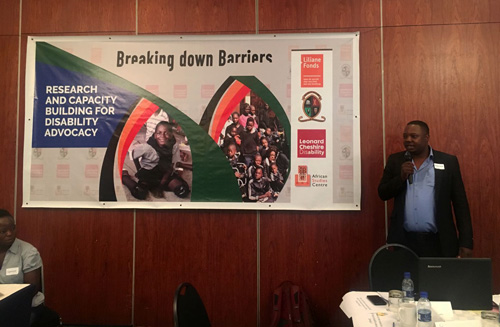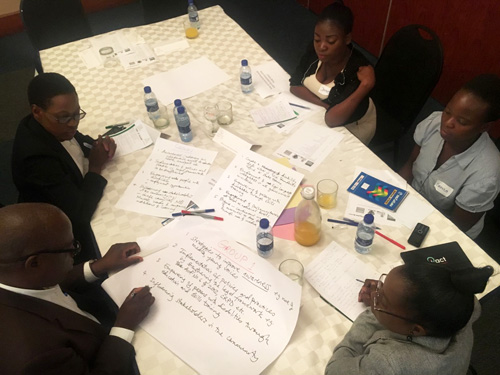Learning event in Zambia: self-advocacy and disability empowerment
 Since 2015 the African Studies Centre Leiden and the Liliane Foundation work together in a learning programme on lobby and advocacy for young Persons With Disabilities (PWDs). Based on research in Zambia, Sierra Leone and Cameroon, the trajectory examines the process and outcomes of disability advocacy. Besides teasing out success factors, an important goal is to strengthen the capacity of the Liliane Foundation and its local partner organizations.
Since 2015 the African Studies Centre Leiden and the Liliane Foundation work together in a learning programme on lobby and advocacy for young Persons With Disabilities (PWDs). Based on research in Zambia, Sierra Leone and Cameroon, the trajectory examines the process and outcomes of disability advocacy. Besides teasing out success factors, an important goal is to strengthen the capacity of the Liliane Foundation and its local partner organizations.
Learning events organised in Sierra Leone, Cameroon and Zambia play an important part in the capacity strengthening. During these events preliminary research findings are presented to local stakeholders and their practical implications are discussed. On 28 March the first learning event in Zambia was organized by students Rik Jongenelen (Leiden University), Lindsay Vogelzang (University of Amsterdam), local supervisor Dr. Thomas Mtonga and the local NGO Cheshire Homes Society of Zambia (CHSZ). The event focused on the advocacy efforts of CHSZ, a key partner organization of Liliane Foundation in Zambia. CHSZ is the initiator of the Young Voices programme, which aimed to build the self-advocacy skills of young persons with disabilities and support them to be agents of change. Rik and Lindsay presented their preliminary research findings to CHSZ staff, Young Voices Members and approximately 30 representatives from civil society, academia and the government.

Rik’s research aimed to understand the potential that role models have in disability advocacy: how can role models inspire youth with disabilities to take action and improve their situation? Lindsay’s research examined the Young Voices programme through the lens of empowerment: how does building the self-advocacy skills of young persons with disabilities contribute to their empowerment?

After the presentation of the research findings, participants of the workshop reflected on the practical implications. During the discussion, they identified numerous concrete strategies to work with role models and empower youth with disabilities to change the negative mindsets of parents, caretakers and policy makers. Furthermore, they highlighted the importance of involving the media in to increase the outreach of (self) advocacy work.
Rik Jongenelen & Lindsay Vogelzang

